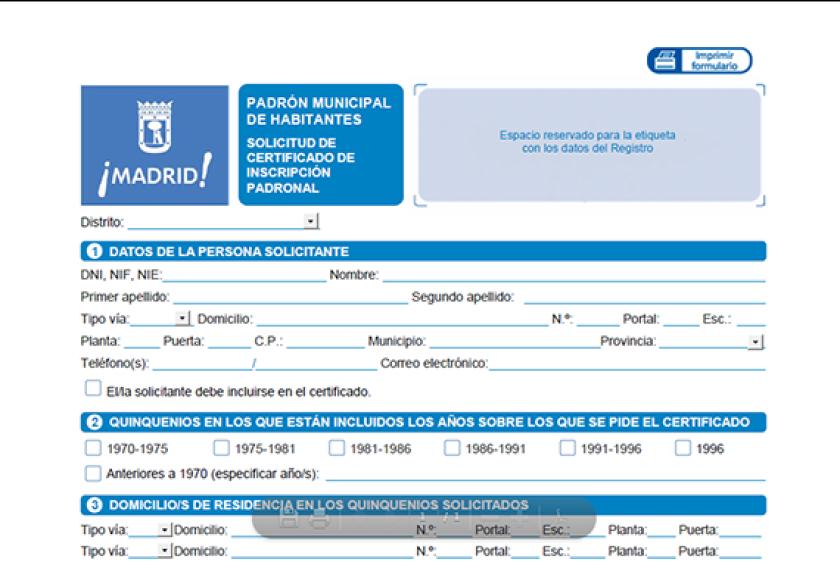
Certificado de empadronamiento (PADRON)
26.03.2024Everything you need to know about Municipal Registration (Certificado de empadronamiento or “PADRON” for short) in Spain
The picturesque Spanish municipalities are buzzing with stories about registration with the municipality. Let's take a closer look at the reality of what it actually means to register with the municipality. Previously, most municipalities recommended everyone to register, even if you only had a second home. More registrations meant more residents, which in turn meant more government support. But nowadays, following comments from the government, most municipalities limit themselves to the legal requirements, which means: registration only for those who actually live in the municipality.
"Padron" is the act by which someone registers in the Municipal Register of the place where he or she lives. All citizens must register in this administrative register of the municipality where they live. This ensures that they have no problem proving their address when necessary. It is legally required and required for a large number of procedures in everyday life.
Each municipality is responsible for creating, updating and storing the data.
Obtaining the Certificado de empadronamiento (PADRON) is proof that you live in the municipality. The cases in which it is necessary to apply for registration for the first time or make a change include:
- Birth: The newborn's parents are responsible for registering.
- Relocation from another city on Spanish territory.
- Change of residence from abroad.
Documents are required to register for the Certificado de empadronamiento (PADRON). Although each municipality may set its own requirements, there are some general requirements throughout Spain:
- The completed registration form
- Identity document in original and copy (DNI, passport, identity card)
- Documentation about the place of residence, such as rental contract, deed of a home, copy of gas, electricity and water bills
- A signed authorization from the already registered owner or tenant of a home in which the new applicant for registration lives.
This procedure applies to both Spanish citizens and foreign residents, and each municipality offers different options for registration, such as in person (usually by appointment), online via the website of the municipality concerned, and so on.
The costs of registration may differ per municipality and range from free to a small amount.
The Certificado de empadronamiento (PADRON) is a reliable proof that a person lives in a certain place and is necessary for various procedures, such as registration of children in schools, application for identity documents, access to the social security health card, social benefits, application for residence and/or work permits, registration with the Civil Registry, registration in the electoral register, discounts on certain municipal services, and so on.
Registration in the municipal register has immediate effect and implies tax obligations for the registered person. Although control over this is limited to date, it is proof of legal residence and can affect various aspects of daily life.
The validity of the Certificado de empadronamiento (PADRON) for official purposes is generally three months, although most municipalities will notify you regularly to renew it.